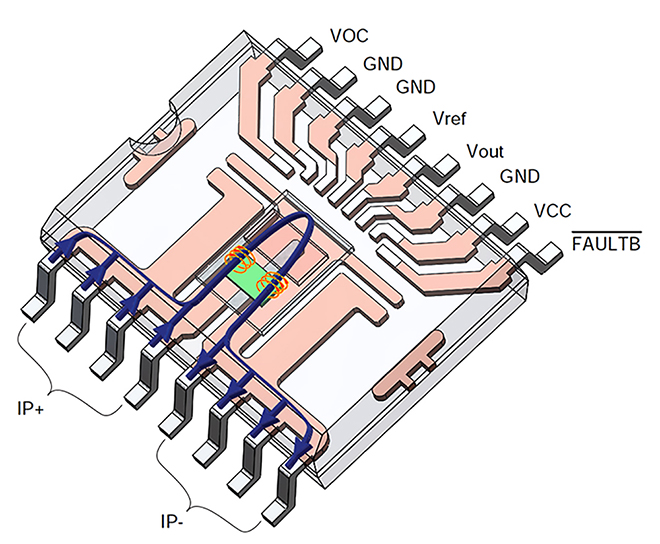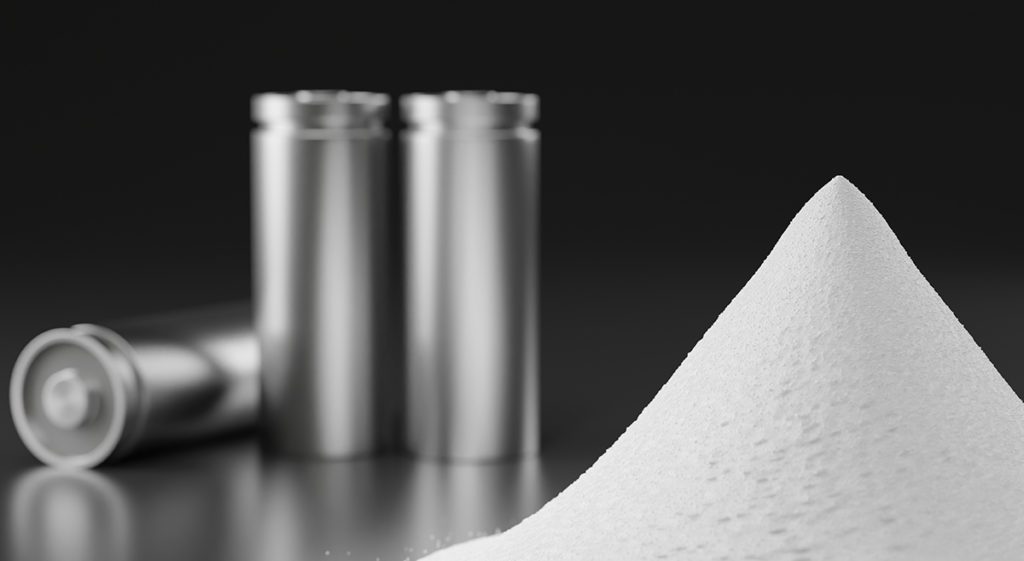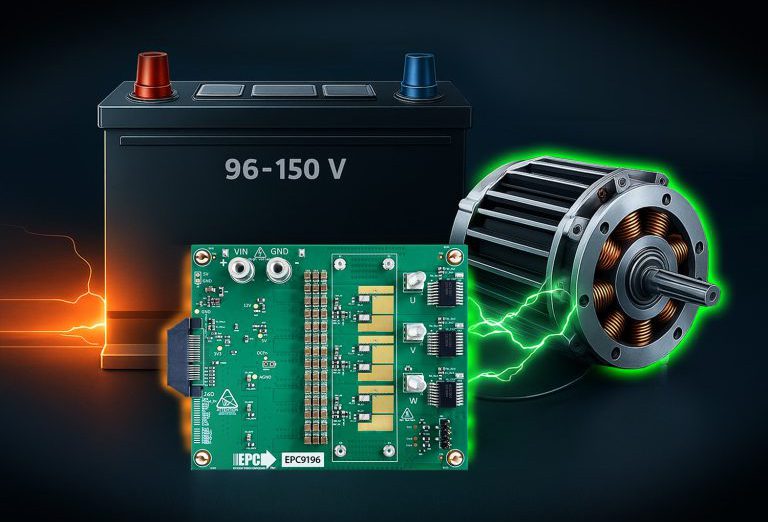ACEINNA’s new ±65 A MCx1101 Current Sensor is the company’s most accurate and highest-bandwidth current sensor. Designed for WBG (wide-bandgap) applications, and available in 3.3- and 5-volt versions, this AMR-based (Anisotropic Magnetoresistive) current sensor is designed for a wide range of power systems and applications.
The MCx1101’s fast response and high bandwidth is designed for fast-switching SiC- and GaN-based power stages. It enables power system designers to make use of the higher speeds and smaller components enabled by wide-bandgap switches. Output step response time is 0.3 μs. The sensor also provides an integrated over-current detection flag to help implement the OCD (Over-Current Detection) feature required in modern power systems. Over-current detection response time is 0.2 μs.
The sensors are designed to deliver a combination of high accuracy, 1.5 MHz signal bandwidth with industry benchmark phase shift vs frequency, fast output step response and 4.8 kV isolation, making them ideal for current sensing in fast-current control loops and protection for high-performance power supplies, inverters, and motor control applications. In addition to the new ±65-amp version, the sensor family includes ±50, ±20, and ±5-amp ranges, and is offered in both fixed-gain (MCA1101) and ratiometric-gain (MCR1101) versions.
“ACEINNA’s MCx1101 current sensors are fully integrated, bidirectional and provide much higher DC and AC accuracy and dynamic range compared with alternative solutions,” says Teoman Ustun, ACEINNA VP of Marketing. “For example, the new ±65-amp versions have a typical accuracy of ±3%. This new current sensor utilizes an industry standard SOIC-16 package with a low-impedance (0.9 milliohm) current path, and is UL/IEC/EN60950-1 certified for isolated applications.”
Source: ACEINNA



















































































